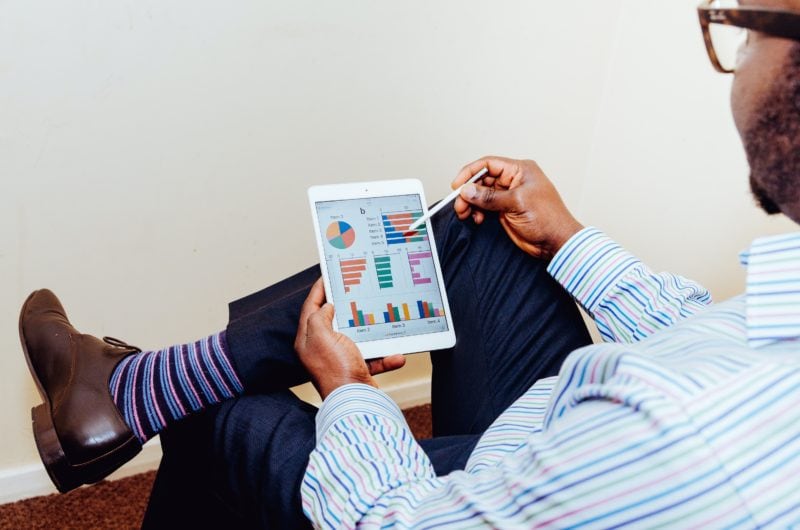Personal data protection is fast becoming a concern for many consumers, especially now many are on their mobile devices constantly. To enhance data protection, companies are seeking to integrate biometric technology together with manufacturers of these devices to combat spyware and malware.
Mobile phone security has constantly been on the radar of smartphone developers such as Android. Android has its built-in play protect scanner that is built into the play store application that scans all the installed applications for malware.
Read on to find out how mobile phone security is being assured with biometric technology that is fast gaining momentum in the mobile phone industry.
How Mobile Devices are using Biometric Technology?
Given the technological advances, mobile giants such as Apple has introduced biometrics such as their Touch ID interface in mobile devices. Fingerprint recognition is now one of the most used function to unlock a mobile device today. However, biometric technology has expanded with many different iterations including facial recognition and iris scanning that is inbuilt into the parts of many mobile devices.
Samsung also has its intelligent scan function that features a combination of iris and facial biometric technologies to improve mobile phone security and accuracy.
This feature also works in low light and Samsung’s combination helps to increase the mobile security protocols so that hackers are unable to fool the device to gain access into the phone’s main operating system.
Facial recognition is also a great option for consumers and many business users such as logging into operating systems and unlocking of devices. The technology is mostly fast, easy and convenient that uses depth-sensing to recognise a person’s face through depth sensing.
Facial recognition works by collecting geometrical images of a user’s face and enabling the device to remember the user by using the device’s in-built camera module.

Biometrics technology has benefited users in providing them with more options and changing people’s lives in different ways. These changes range from addressing privacy concerns, secure verification and to make lives more hassle-free through harnessing mobile devices.
Benefits of Biometrics in Mobile Devices
Eliminating privacy concerns
Adopting biometric technology in mobile devices have also helped to minimise cybersecurity issues such as enabling hackers to gain access to these devices by bypassing the password protocols. Norton, an antivirus company, warns that hackers are able to take hold of all these private personal information, including the bank account details. This is where biometric technology can help, as there are more security protocols.
Proof of Identity and Authentication
Mitek notes that biometric security verification in mobile devices utilises your physical facial or fingerprint features to access these devices. These only grant access to the user whose credentials match and thus it is an added advantage to other methods such as keying in of passwords.
Ease of Accessibility
In line with recommendations made by the University of South Florida, having biometric technology in mobile devices has given the user more convenience and ease of access. Previously, users would need to remain a password or specific pattern to unlock their devices and they have to remember that password. Users would also need to come up with a stronger password. Biometric technology and authentication have allowed users to enjoy the ease of accessibility.
Innovation in Online Payments
Paypal is currently testing its new face verification feature to enable users to make payments through their mobile devices. This is paving the way for innovative biometric modes of payment and allowing merchants the ease of access through using the Paypal application to monitor transactions.

Implementing of Biometric Technology
Using biometric technology has many benefits, more so in the area of facial recognition technology. Security firms and law enforcement agencies like the police are using the technology embedded in security systems to apprehend criminals in their efforts to step up public safety and surveillance.
Raconteur noted that more companies are adopting biometrics through biometric payment such as when purchasing items online, they are able to access the banking services using biometrics such as facial recognition through their mobile devices. To address security concerns, merchants have taken precautions by encrypting the data on their end.
Microsoft has also introduced and marketed its Windows Hello biometric facial recognition feature in its devices to grant users the solution of gaining quicker access to their devices through its Windows 10 operating system. This is done without the hassle of remembering passwords and even applications that require users to sign in to their accounts can do so with the Windows Hello feature.
According to the National Cyber Security Centre in the United States, the implementation of biometric technology will ensure that mobile applications, devices and operating systems have a better security as these devices are increasingly common in today’s context. With greater security protocols, this will help to tackle consumers’ concerns of privacy and mitigate potential security risks.
As tech companies and organisations review cybersecurity protocols to ramp up security and adapt to the latest technology advances, biometrics is becoming a key aspect of security infrastructure as seen in mobile devices as everyone is connected through this mode of communication.

Threats to Mobile Phone Security
With the rise of mobile security threats, Kaspersky highlighted how mobile applications are often the cause of data leakage. It is important only to give permissions to applications that need them to work. This will enable the user to monitor which applications such as banking applications that require these data.
According to CNA Hardy, another threat would be phishing attacks that occur through mobile devices as many are using their devices to correspond through email. Mobile device users might click on these emails without hesitation, but this might allow their devices to be exposed to cybersecurity threats and their personal information to be stolen for potential criminal use.
Tech website ZDNet mentioned spyware is also another threat to mobile phone security that a user should take note and only access websites or install applications only through trusted sources. It is essential to also monitor which mobile applications that you have granted access and not to click on suspicious emails with links. If in doubt, always do a scan with antivirus software to determine whether the content is safe or otherwise.
There is still a need to have greater measures in instilling public confidence in biometric technology and developers are collaborating with companies to provide more solutions to address concerns over security, support and privacy.

How is Intercorp Bridging the Mobile Security Gap?
Intercorp Solutions provides the solution for software developers and companies to get an affordable facial recognition solution easily through their Visage Facial Recognition system, without the need to build a facial recognition software from the ground up.
Through the application, the system aims to provide 99.8 per cent accurate mobile facial recognition, with efficient after-sales support services, easy to use software interface, and most importantly integration into a user’s existing application.
To conclude, biometric technology in mobile phone security can empower and enable companies to think of how technology is able to create a more secure ecosystem for mobile devices. Having a robust solution will minimize the risks of cybercriminals and threats from compromising private and personal data to ensure user confidentiality and confidence.
Curious to learn more? Learn how Intercorp Solutions can provide that solution to safeguard mobile phone security, contact us now.
Image Credits
